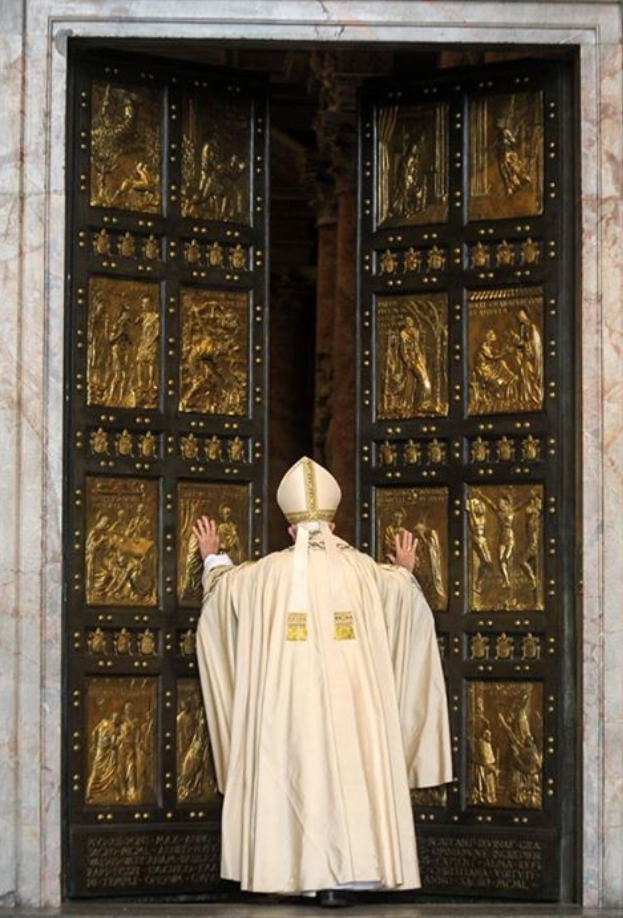A Jubilee also entails the granting of indulgences. This practice will acquire an even more important meaning in the Holy Year of Mercy. Pope Francis, Misericordiae Vultus, par. 22.
No way. I wasn’t going to jump through hoops to try to gain God’s favor—because that’s how I saw indulgences at the time. As a “revert” to Catholicism from evangelical Christianity, the doctrine of indulgences still scandalized me.
An indulgence is a remission before God of the temporal punishment due to sins whose guilt has already been forgiven, which the faithful Christian who is duly disposed gains under certain prescribed conditions.” (Catechism of the Catholic Church, par. 1471).
Gains? Under certain conditions? Nope. Not for me. While I had accepted the doctrine of purgatory and the idea that temporal consequences may need remediation after sin is forgiven, the thought that I could do something to help a deceased soul repair the damage caused by sin still seemed, frankly, like hocus pocus to me.
Until I lost two brothers to suicide—both baptized Catholics—compelling me to ask: What if indulgences aren’t about jumping through hoops to win God’s favor, but are instead about doing something concrete as an act of love for another person?
What if I could indulge my brothers in the unfathomable, unmerited mercy of God, asking that the lingering consequences of sin—more apparent than ever in the face of suicide—be remedied?
And what if I could assist my brothers in the necessary work of purification; in healing the wounds inflicted by sin?
Why wouldn’t I want to help them if I could?
Thus began my habitual practice of asking the Lord for an indulgence for them, or someone else in my bloodline, every time I go to Confession.* Because fundamentally, indulgences admit that we’re not in this alone, but that we’re members of one Body who help and support each other on this journey to salvation. Indulgences acknowledge that we are, indeed, our brothers’ keeper, and that the voices of our brothers and sisters cry out for lavish mercy. Indulgences draw on the power of “the infinite value, which can never be exhausted, which Christ’s merits have before God” (Catechism of the Catholic Church, par. 1476)—the power that alone can redeem sin and its consequences. We are invited to participate in that power each time we pray, each time we turn to God for mercy and forgiveness, and each time we ask for an indulgence, which applies to ourselves and others of the fruits of Christ’s redemption.
While I can’t presume to know with certainty that my brothers are saved, I believe and trust that "by ways known to (God) alone," they are (Catechism of the Catholic Church, par. 2283). I do not despair of their salvation, but entrust them to the eternal embrace of God that encompasses all time, all people, all things. I beg God’s mercy for them, availing myself of the graced opportunity to pray for a plenary indulgence for their souls. That is just what I did on Scott’s birthday, December 30, when I walked through the Jubilee Door of the Basilica of the Immaculate Conception in Washington, D.C., holding him close to my heart.
God’s forgiveness knows no bounds, Pope Francis wrote in Misericordiae Vultus. Nor does his indulgent love, which can reach into all things, making up—and inviting us to participate—wherever love is lacking.
*For a fuller explanation about indulgences, see the Catechism of the Catholic Church, par. 1471-1479.
This article appeared first on Aleteia.

